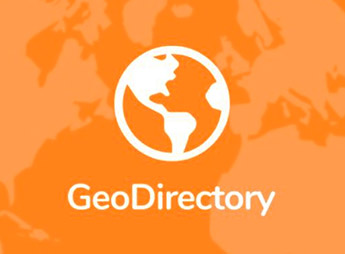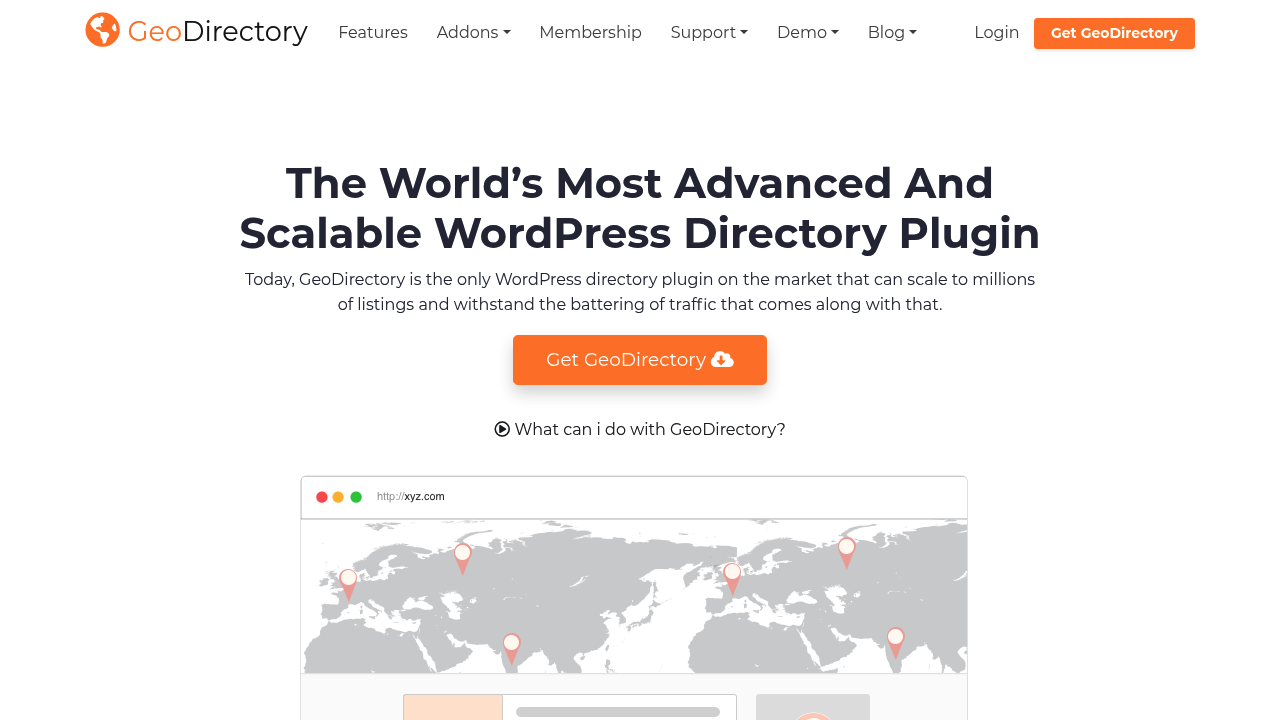
3 Types Of Modern Directories
Discover the three main types of directories you can build, from affiliate to local and user-generated content. Learn how to select the right software to avoid pitfalls.
A Directory website showcasing the best platforms and software tools to build an online directory website. Hey 👋 I'm Andrew. I created this site to help simplify the process of creating niche directories.

A comprehensive comparison of GeoDirectory, the location-focused WordPress directory plugin built for business listings and local directories.

Meta Description: A comprehensive comparison of GeoDirectory, the location-focused WordPress directory plugin built for business listings and local directories. Discover its standout mapping features, pricing structure, and how it compares to Business Directory Plugin, Directorist, and other popular alternatives.
Building a directory website used to mean months of custom development or settling for basic listing functionality that barely scratched the surface of what users expected. The WordPress ecosystem has changed that entirely, but choosing the right directory plugin still feels like navigating a maze of similar-sounding features and conflicting reviews.
GeoDirectory has carved out a distinct position in this crowded market by focusing intensely on one thing: location-based directories that actually work the way people search for local businesses. While other plugins treat mapping as an afterthought, GeoDirectory builds everything around geographic functionality from the ground up.
This isn't just another business directory plugin with maps bolted on. It's a comprehensive platform designed specifically for location-driven websites where proximity, neighborhood boundaries, and local search patterns matter more than alphabetical listings.
Traditional directory plugins handle location poorly. They might show a pin on a map, but they struggle with radius searches, neighborhood filtering, or the complex ways people actually look for local services. Users want to find "pizza near downtown" or "plumbers within 10 miles," not scroll through alphabetical lists hoping to spot something nearby.
GeoDirectory addresses this by treating geographic data as a first-class citizen. Every listing understands its precise location, neighborhood associations, and relationship to other businesses. The search functionality works the way people think—by proximity, area, and local relevance rather than just keyword matching.
This geographic intelligence extends beyond basic mapping. The plugin handles multiple locations per business, understands postal codes and neighborhood boundaries, and integrates with local SEO patterns that help directories rank well for "near me" searches.
Local business directories represent the obvious use case, but GeoDirectory's location intelligence makes it valuable for several specific scenarios. City governments and chambers of commerce often need directories that reflect actual geographic boundaries and administrative districts. Real estate agencies require property listings with precise location data and neighborhood context.
Event organizers benefit from the venue mapping and location-based event discovery features. Tourism boards can create comprehensive destination guides where attractions, restaurants, and accommodations relate to each other geographically rather than just categorically.
The plugin also serves niche markets well. Professional service directories, healthcare provider networks, and franchise location finders all benefit from sophisticated location handling that generic directory plugins can't match.
What makes GeoDirectory particularly appealing is its scalability. Small local directories with a few hundred listings work just as well as massive databases with millions of entries. The search performance remains consistent, and the mapping functionality doesn't slow down as the database grows.
The foundation starts with comprehensive location management. Each listing can have multiple addresses, precise GPS coordinates, and associations with defined geographic areas. This isn't just storing an address—it's creating a spatial understanding of where businesses exist in relation to their surroundings.
The search functionality reflects this geographic intelligence. Users can search by radius, draw custom areas on maps, or filter by predefined neighborhoods and districts. The results understand proximity weighting, showing closer businesses first while maintaining relevance to the search terms.
Advanced mapping goes beyond basic pins on a map. GeoDirectory integrates seamlessly with Elementor PRO's theme builder and leverages dynamic data features, allowing complete customization of how location information displays. Interactive maps, street view integration, and custom marker designs all work within the familiar WordPress ecosystem.
The monetization features deserve particular attention. The pricing manager allows different rates based on location—premium pricing for downtown listings, discounted rates for suburban areas. Featured listings can be geographically targeted, ensuring promoted businesses appear prominently in their relevant areas.
Membership integration connects location privileges with user tiers. Premium members might get multiple location listings or priority placement in specific geographic zones. This creates natural revenue opportunities that align with how local directories actually make money.
GeoDirectory takes an interesting approach to pricing by offering the core plugin completely free. This isn't a limited trial—the base functionality includes unlimited listings, mapping features, and basic search capabilities. You can build and launch a directory without spending anything upfront.
The premium membership costs $229 per year, including support, updates, and access to all new products released. This single price point eliminates the confusion of multiple tiers and upgrade paths that plague other directory solutions.
What's included in that premium membership is comprehensive. Payment processing, advanced user management, reviews and ratings, social media integration, and enhanced SEO features all come standard. Most competitors charge separately for these capabilities or lock them behind higher-tier plans.
The pricing model makes particular sense for serious directory projects. If you're building a business around your directory, the annual cost is minimal compared to the revenue potential. For casual or experimental projects, the free version provides enough functionality to validate the concept before committing to premium features.
Business Directory Plugin represents the most direct alternative, offering similar local business functionality with a different architectural approach. Business Directory Plugin positions itself as a simple solution for non-technical users, but this simplicity comes at the cost of advanced location features. While easier to set up initially, it lacks the geographic intelligence that makes GeoDirectory distinctive.
The pricing comparison favors GeoDirectory for comprehensive implementations. Business Directory Plugin charges separately for payment processing, advanced search, and mapping features. By the time you've assembled equivalent functionality, the cost exceeds GeoDirectory's single annual fee.
Directorist markets itself as an AI-powered directory solution, emphasizing automation and smart categorization over geographic functionality. This makes it compelling for non-location-based directories but less suitable for projects where proximity and area-based search matter most.
Directorist's strength lies in content management and automated listing enhancement. For directories focused on professional services or digital businesses where location is secondary, it might offer better value. However, the geographic search capabilities don't match GeoDirectory's sophistication.
Directory Pro and similar premium-only solutions often provide more design flexibility and front-end customization options. Directory Pro starts at $39 with features like frontend dashboards and comprehensive payment integration. These plugins excel at creating polished, professional-looking directories but typically treat location as just another data field rather than the organizing principle.
GeoDirectory's geographic focus creates natural limitations for certain types of directories. If location isn't central to how your users search and discover listings, the additional complexity might not provide corresponding benefits. Online service directories, digital product marketplaces, or purely categorical business listings might be better served by simpler alternatives.
The learning curve exists, particularly for the advanced location features. Setting up neighborhood boundaries, configuring radius searches, and optimizing geographic SEO requires understanding concepts that basic directory plugins skip entirely. While the documentation is comprehensive, expect to invest time in properly configuring the geographic aspects.
Customization requires more technical knowledge than some alternatives. While the free plugin provides extensive functionality, creating unique designs or integrating with specific themes often requires comfort with PHP and WordPress development practices. The Elementor integration helps, but it's not a complete substitute for custom development skills.
Performance considerations become important with large datasets. While GeoDirectory handles scale well, the geographic calculations and mapping features require more server resources than simple text-based directories. Proper hosting becomes crucial for directories with thousands of listings and heavy traffic.
What makes GeoDirectory genuinely different becomes apparent when you consider how people actually use local directories. Traditional search patterns don't translate well to location-based discovery. Users don't think in categories first—they think in proximity and area.
This geographic intelligence creates SEO advantages that matter for organic traffic. Google quickly indexes events and listings for "what's on near me" type searches, capitalizing on the growing importance of local search results. The structured location data helps search engines understand the geographic relevance of listings in ways that benefit overall directory visibility.
The mapping integration feels native rather than bolted-on because it influences every aspect of how the directory functions. Search results, featured listings, user dashboards, and administrative interfaces all understand and respond to geographic context. This consistency creates a more intuitive experience for both directory owners and end users.
GeoDirectory succeeds in solving a specific problem extremely well rather than trying to be everything to everyone. If your directory concept centers around location—where businesses are, how close they are to users, and how geography influences discovery—this plugin provides capabilities that generic alternatives simply can't match.
Multiple expert comparisons consistently rank GeoDirectory as the best directory plugin for WordPress, particularly for location-based implementations. This recognition reflects not just feature completeness but architectural decisions that prioritize geographic functionality from the foundation up.
The pricing model removes many barriers to getting started while providing clear value for serious implementations. The free version eliminates risk for testing and validation, while the comprehensive premium bundle avoids the nickel-and-dime pricing that makes other solutions expensive to implement fully.
For local business directories, city guides, real estate listings, event directories, or any implementation where location drives user behavior, GeoDirectory represents the most mature and capable solution in the WordPress ecosystem. The geographic intelligence isn't just a feature—it's the organizing principle that makes everything else work better.
Ready to build a location-intelligent directory? Explore GeoDirectory and discover how geographic functionality can transform your directory project. Start with the free version to test the concepts, then upgrade when you're ready to unlock the full monetization and advanced features that can take your directry project to the next level.

 Brilliant Directories
Brilliant Directories
Looking for the best directory website builder? Discover if Brilliant Directories is the right directory software to launch your business directory, membership site, or niche listing platform. Explore features, pricing, benefits, and comparisons to other directory-building tools.

A feature-rich, reliable and AI-powered, one of the best WordPress directory plugins - your go-to solution for building and managing your directory business.

 Unicorn Platform
Unicorn Platform
Unicorn Platform is a no-code builder that has been used as the base for several popular directories. Co-created by Directory King, John Rush.

 Make A Dir
Make A Dir
Make a Directory. Super-easy, no-code system for building directory sites.

 Softr
Softr
Softr is a no-code soution to build web apps, and they have a unique directory component that works with Airtable.

Discover the three main types of directories you can build, from affiliate to local and user-generated content. Learn how to select the right software to avoid pitfalls.


Explore a comprehensive analysis of the best platforms for building your niche directory. Understand the benefits and trade-offs of WordPress, custom solutions, and SaaS options to make an informed decision.

Discover how to create and monetize your own directory site using Softr and Airtable. Learn to launch a scalable online business that generates passive income within days, without the need for coding or hiring developers.

Explore the benefits of using WordPress plugins versus no-code platforms to create an effective niche directory. Discover how to target specific markets and connect businesses with their ideal customers.